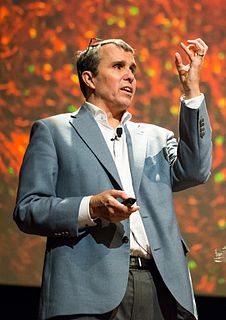A Quote by Eric Betzig
It takes a huge amount of effort to move from a successful high-tech prototype to broader adoption of an imaging technology.
Quote Topics
Related Quotes
A lot of the medical imagery has to do with my own biography. I had open heart surgery, I had knee replacements, I had a hiatal hernia, etc. Every time you go for surgery, you get a whole spectrum of imaging. Of course, I've been doing research in imaging technology across the board for close to twenty years. When you think about it, medical imaging is actually quite new. The first major medical image was the x-ray in 1895. That was the first time you got imaging of anything that's in the bodily interior.
All images generated by imaging technology are viewed in a walled-off location not visible to the public. The officer assisting the passenger never sees the image, and the officer viewing the image never interacts with the passenger. The imaging technology that we use cannot store, export, print or transmit images.
The best results are achieved by using the right amount of effort in the right place at the right time. And this right amount is usually less than we think we need. In other words, the less unnecessary effort you put into learning, the more successful you'll be... the key to faster learning is to use appropriate effort. Greater effort can exacerbate faulty patterns of action. Doing the wrong thing with more intensity rarely improves the situation. Learning something new often requires us to unlearn something old.
Alan Rickman has a huge presence in the Perfume: The Story Of A Murderer and takes an enormous amount of space with no effort. I wanted somebody to leave behind a strong impact and be a threat for Grenouille. When Alan takes to the screen, we immediately know there's an intelligent, instinctive and powerful force, so if he's pursuing our main guy then our main guy is in trouble.
When someone takes their existing business and tries to transform it into something else - they fail. In technology that is often the case. Look at Kodak: it was the dominant imaging company in the world. They did fabulously during the great depression, but then wiped out the shareholders because of technological change.




































